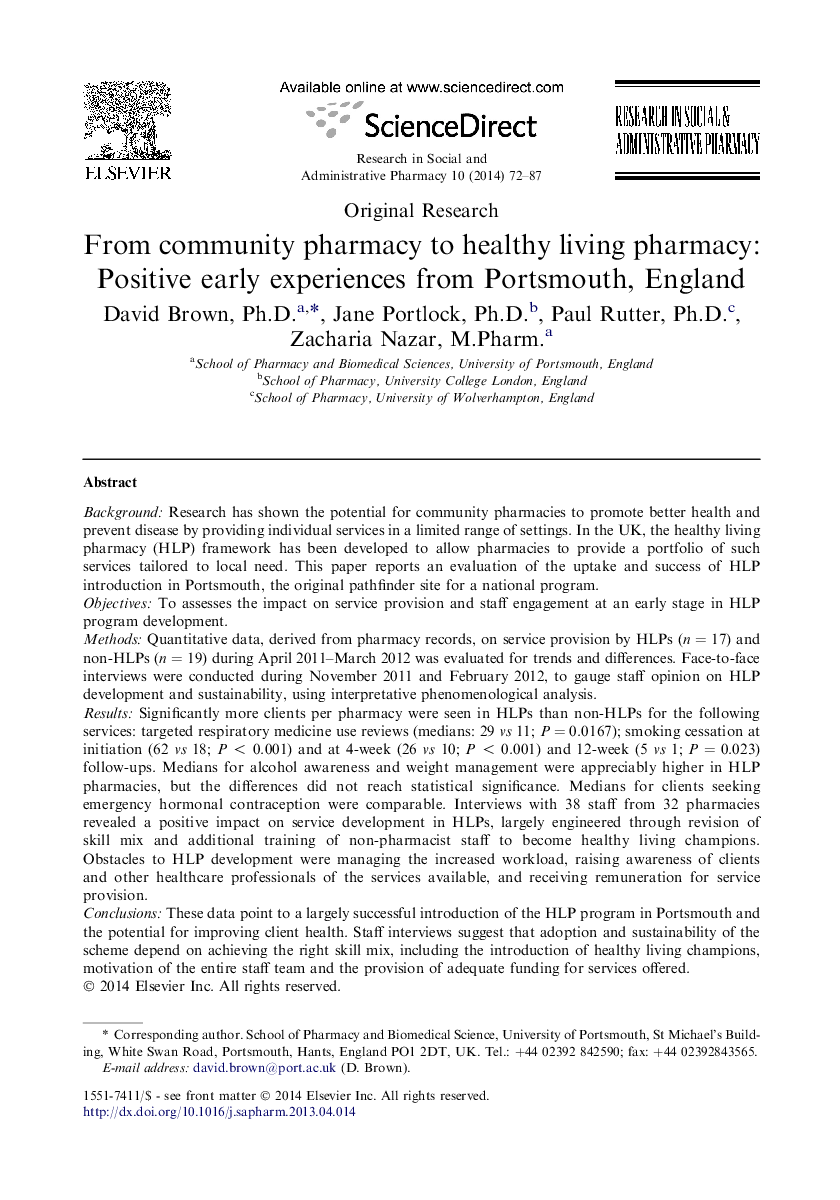| Article ID | Journal | Published Year | Pages | File Type |
|---|---|---|---|---|
| 2508708 | Research in Social and Administrative Pharmacy | 2014 | 16 Pages |
BackgroundResearch has shown the potential for community pharmacies to promote better health and prevent disease by providing individual services in a limited range of settings. In the UK, the healthy living pharmacy (HLP) framework has been developed to allow pharmacies to provide a portfolio of such services tailored to local need. This paper reports an evaluation of the uptake and success of HLP introduction in Portsmouth, the original pathfinder site for a national program.ObjectivesTo assesses the impact on service provision and staff engagement at an early stage in HLP program development.MethodsQuantitative data, derived from pharmacy records, on service provision by HLPs (n = 17) and non-HLPs (n = 19) during April 2011–March 2012 was evaluated for trends and differences. Face-to-face interviews were conducted during November 2011 and February 2012, to gauge staff opinion on HLP development and sustainability, using interpretative phenomenological analysis.ResultsSignificantly more clients per pharmacy were seen in HLPs than non-HLPs for the following services: targeted respiratory medicine use reviews (medians: 29 vs 11; P = 0.0167); smoking cessation at initiation (62 vs 18; P < 0.001) and at 4-week (26 vs 10; P < 0.001) and 12-week (5 vs 1; P = 0.023) follow-ups. Medians for alcohol awareness and weight management were appreciably higher in HLP pharmacies, but the differences did not reach statistical significance. Medians for clients seeking emergency hormonal contraception were comparable. Interviews with 38 staff from 32 pharmacies revealed a positive impact on service development in HLPs, largely engineered through revision of skill mix and additional training of non-pharmacist staff to become healthy living champions. Obstacles to HLP development were managing the increased workload, raising awareness of clients and other healthcare professionals of the services available, and receiving remuneration for service provision.ConclusionsThese data point to a largely successful introduction of the HLP program in Portsmouth and the potential for improving client health. Staff interviews suggest that adoption and sustainability of the scheme depend on achieving the right skill mix, including the introduction of healthy living champions, motivation of the entire staff team and the provision of adequate funding for services offered.
